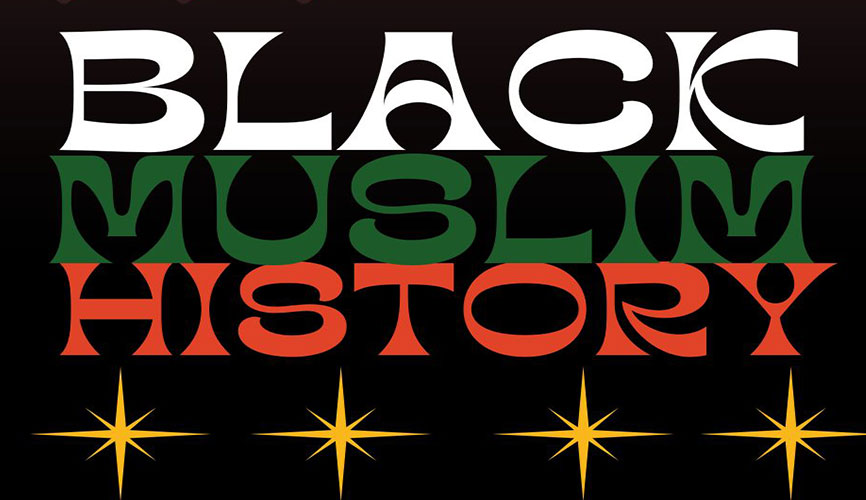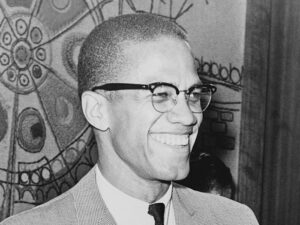As a Black Muslim, I believe it’s crucial for all Muslims in America to understand the rich and complex history of Black Muslims in this country. Our stories are woven into the very fabric of Islam in America, and knowing this history isn’t just important—it’s essential for everyone. During Black History Month we will delve into Black Muslim history and here’s why I think it matters and what we hope to highlight.
1. Celebrating Our Contributions
Black Muslims have played an incredible role in shaping the Islamic landscape in America. From early Muslims like Omar Ibn Said to others like Elijah Muhammad and his wife Sister Clara Muhammad, Noble Drew Ali, Malcolm X, Muhammad Al, and Imam W. D. Muhammad who didn’t just impact the Muslim community but fought tirelessly for our self-determination, civil rights and social justice for themselves and other marginalized people. By learning about our history, all Muslims can appreciate the foundation Allah blessed us to build as Black Muslims and recognize the ongoing struggle for equality.
2. Understanding Our Context
The experiences of Black Muslims are deeply tied to the broader story of African Americans, including the harsh realities of slavery, segregation, and the Civil Rights Movement. Understanding this context helps us all grasp the systemic challenges that Black Americans continue to face. It’s crucial for fostering empathy and unity among different racial and ethnic groups within our Muslim communities.
3. Busting Stereotypes
Many stereotypes about Muslims stem from a lack of understanding. By digging into our history, Muslims can challenge misconceptions and break down the barriers that often divide us. This knowledge empowers us to engage in meaningful conversations about race, Islamophobia, and cultural identity, paving the way for a more nuanced view of what it means to be a Muslim in America.
4. Building Stronger Community Bonds
The Muslim community is incredibly diverse, and that diversity is one of our greatest strengths. By exploring the history of Black Muslims, we can foster deeper connections and mutual respect among different groups. This shared knowledge encourages collaboration and understanding, which are vital for tackling issues like discrimination and marginalization that we all face.
5. Finding Inspiration for Action
The stories of Black Muslims are filled with resilience and activism. Our struggles remind us of the power of discipline, self-determination, spiritual resilience, and standing up for justice. Learning about our history can inspire all Muslims to get involved in their communities—whether that means advocating for social justice, engaging in interfaith dialogue, or addressing and dismantling anti-blackness. Together, we can make a difference.
6. Honoring Our Cultural Heritage
Understanding the history of Black Muslims also means valuing the rich cultural heritage we bring to the Islamic tradition in America. From our art and music to our literature and spirituality, our contributions add depth and beauty to the broader narrative. By honoring this heritage, we can celebrate our past while working toward a vibrant future.
Wrap-Up
The history of Black Muslims in America is not just an interesting chapter; it’s a vital part of the larger story of Islam in this country. For all Muslims in America, understanding our history is key to building unity, fighting against prejudice, and promoting social justice. By engaging with these important stories, we empower ourselves and our communities to create a more inclusive and just society for everyone. Embracing our history isn’t just about remembering the past; it’s about shaping a better future together.
We’re excited to share more content about Black Muslim history during February, insha’Allah. Stay on the lookout!
Akanke is a native of Atlanta who now resides in Dayton, Ohio. She has also lived in Bahrain, Saudi Arabia, and Grenada, West Indies. She discovered Islam in 1994, and her faith, spirituality, and personal development have been the driving force in her life ever since. A graduate of Georgia State University with a degree in Communication, Akanke focused on film, TV, and cultural anthropology during her studies. Her career is diverse, and her interests span various media platforms. From producing TV and radio shows to creating documentaries, coaching individuals towards empowerment, creating and exhibiting unique abstract paintings, providing public speaking guidance, delivering leadership training, and lending her voiceover talent to various projects, she strives sincerely to make a lasting and authentic impact wherever she goes. Akanke has been a dedicated supporter of MANA since 2007, currently serving as the organization’s Board Vice President. In this role, she plays a key part in shaping the organization’s vision and strategy. Additionally, she serves as the part-time Communications Director, where she excels in crafting compelling communication tools, including newsletters, articles, graphic designs, and social media campaigns. Through her work with MANA, Akanke continues to make a positive difference, using her talents and passion to uplift and inspire others.






One Response
I will be interested to learn or read more about Black Muslims in America.